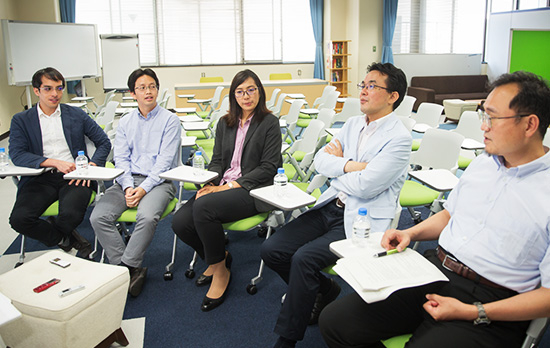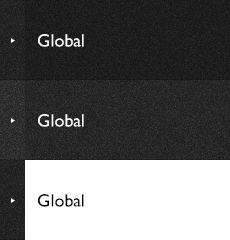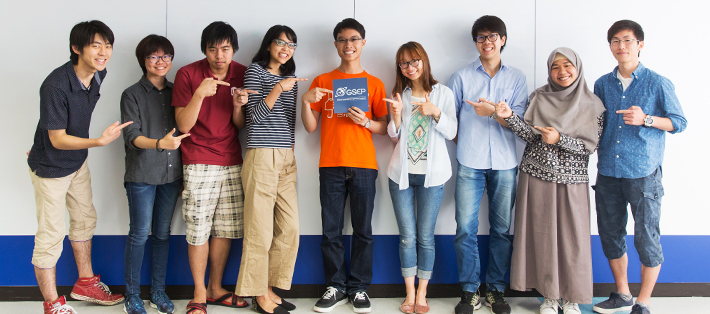
A transdisciplinary approach to tackling global issues
Established in 2016, GSEP exemplifies Tokyo Tech's commitment to internationalization, a key aspect of the Top Global University Project launched by Japan's Ministry of Education, Culture, Sports, Science and Technology (MEXT). In 2014, Tokyo Tech was selected as a top-tier institute under this initiative.
GSEP is a four-year Bachelor of Engineering degree program run by the TSE within the School of Environment and Society, where undergraduates can acquire a solid knowledge base and develop a transdisciplinary approach to problem-solving that will help them tackle some of the most pressing or complex global problems such as climate change and resource security. TSE is the fusion of a wide range of fields, including science, engineering and management, dedicated to cultivating the next generation of science and engineering leaders.
From their second year of study, students at GSEP can learn alongside Japanese students at TSE by taking courses that range from mathematics, engineering and management to international development, environmental policy and social systems.
All students at GSEP and TSE are encouraged to develop their critical thinking, communication and leadership skills through interactive, project-based learning.

A total of 41 students have so far been admitted to the GSEP program, including many MEXT scholars from overseas. Here, six students currently enrolled at GSEP, and two Japanese students and one international student who belong to TSE, tell us more about the curriculum, their experiences studying at Tokyo Tech, and plans for the future.
Students' viewpoints on GSEP and TSE
Seven faculty members also share their thoughts and reflections on GSEP's launch and overall objectives, how the program has evolved over the past years, and what qualities they look for in prospective students.
Students' viewpoints on GSEP and TSE
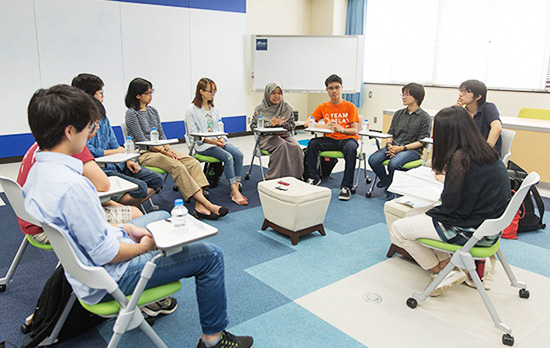
Embracing diversity: A vibrant, multicultural learning environment
In your view, what makes GSEP unique?
Chawit: Through GSEP, we can look at science and engineering from a broader perspective. We can study other aspects related to engineering like management and sociology and we can also learn more about real-life global issues.
Rezkita: I think what makes GSEP unique is the diversity. There are people from many different countries, so we get to experience different cultures every day. The more you get to know each member of GSEP, the more you know about each culture.
Tsani: Through project-based classes, we can get together and discuss real-world problems. Studying in groups of five to eight people provides a good chance for us to develop our communication skills. Moreover, the course of the TSE enables us to learn about current issues in developing countries and expand our knowledge.
Maythawee: GSEP gives us the opportunity to explore before choosing a specialized field in the third or fourth year. It's a good opportunity for people who don't necessarily know what they want to do yet, but know they're interested in global issues.
Khanh: GSEP is unique because it's the only undergraduate program at Tokyo Tech that's entirely in English, and for TSE in general, we get to study so many different topics. There are professors from a host of disciplines, including economics, various fields of engineering, computer science and environment.
Napat: Another unique feature is we have access to a common room, and in TSE, we have a free lounge. We use the lounge for getting together to do project work. Also, we can use it for relaxing, talking to each other and having lunch.
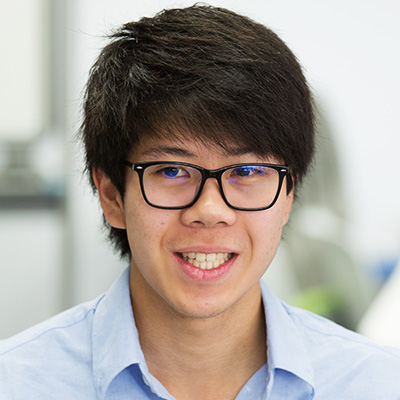
Chawit Chaijirawiwat (Thailand)
3rd year, GSEP
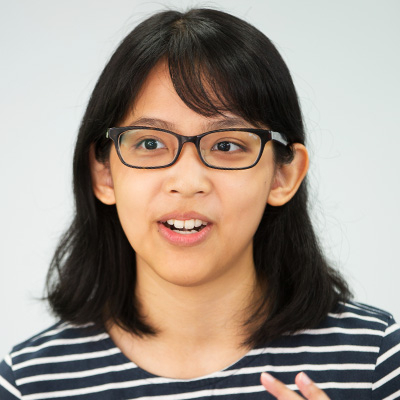
Rezkita Rudjito (Indonesia)
3rd year, GSEP
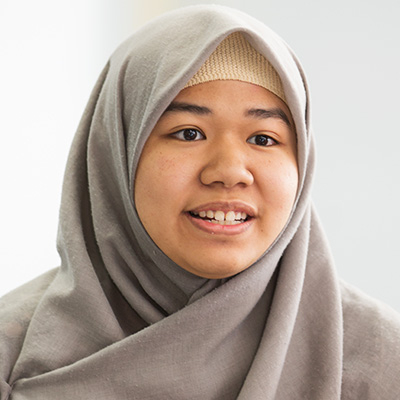
Tsani Tsamara (Indonesia)
3rd year, TSE
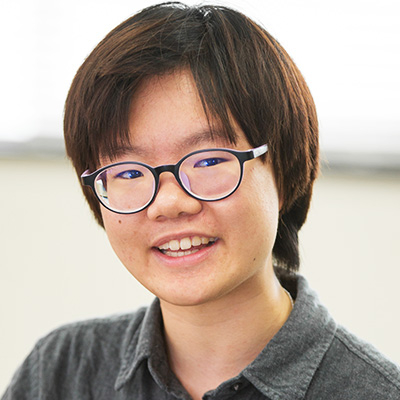
Maythawee Ratchatawijn (Thailand)
3rd year, GSEP
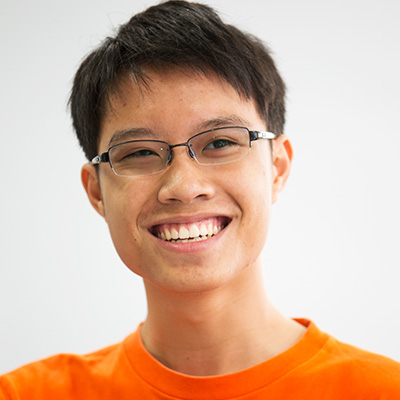
Do Ngoc Khanh
(Vietnam) 3rd year, GSEP
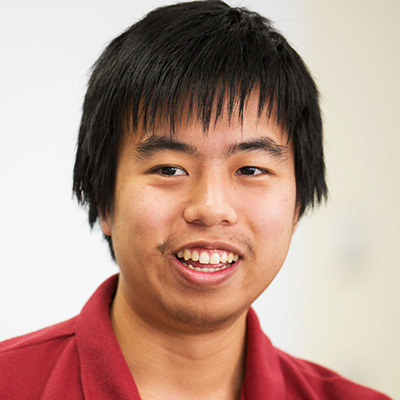
Napat Thumwanit (Thailand)
3rd year, GSEP
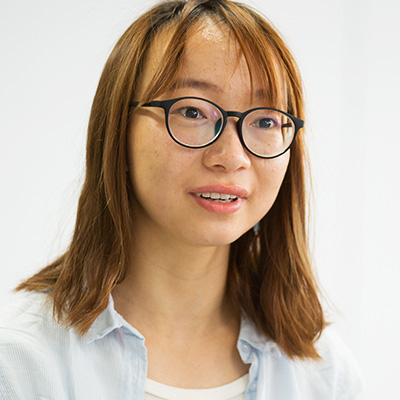
Uyanga Tumurbaatar (Mongolia)
3rd year, GSEP
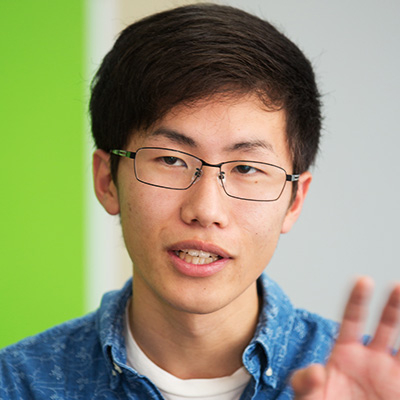
Yaoki Sato (Japan)
3rd year, TSE
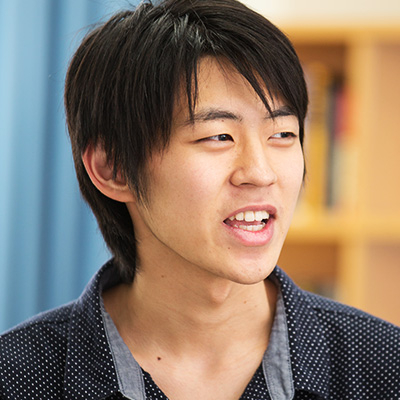
Harunari Soeda (Japan)
2nd year, TSE
A top choice for engineering and transdisciplinary studies
What led to your decision to join GSEP or TSE?
Uyanga: During high school, I decided to go abroad for university. I wanted to study engineering and Japan is a top place to study in this field. Growing up, I watched Japanese educational programs and the country seemed interesting. When I searched for information about Japanese universities, it seemed you have to be able to understand Japanese, which was a barrier. So, when I first heard about GSEP, it was perfect for me.
Rezkita: For me, I think what made me decide to come here was the program itself, the timing — everything just fell into place. I studied a little bit of Japanese, but it was after I knew I got accepted. I learned the basics through a one-month course in my hometown. That knowledge helped me during the transition process.
Yaoki: The reason why I chose TSE is the variety of fields of study. I'm interested in nuclear engineering but through this program, I can explore a wider range of fields including biology, chemistry and materials science. This course enables you to expand your options and choose later on, which was suitable for me.
Harunari: The course of TSE looked interesting to me because it's about exploring global issues that will become increasingly important in the coming decades. I was born and raised in Japan. The program has helped me step up my English and develop a wider view of the world. Through my studies, I want to be the kind of person who can contribute and give back to society.

Chawit Chaijirawiwat
(Thailand)
3rd year, GSEP

Rezkita Rudjito
(Indonesia)
3rd year, GSEP

Tsani Tsamara
(Indonesia)
3rd year, TSE

Maythawee Ratchatawijn
(Thailand)
3rd year, GSEP

Do Ngoc Khanh
(Vietnam)
3rd year, GSEP

Napat Thumwanit
(Thailand)
3rd year, GSEP

Uyanga Tumurbaatar
(Mongolia)
3rd year, GSEP

Yaoki Sato
(Japan)
3rd year, TSE

Harunari Soeda
(Japan)
2nd year, TSE
Interactive courses designed to bridge science and the humanities
Can you tell us more about the classes? Is it easy to communicate with the faculty?
Maythawee: One of the most interesting classes I think for GSEP students is the Tokyo Tech Visionary Project. It's eye-opening because most of us have a science background and have never tried social-based research before. That class enabled us to learn more about literature and humanities. For example, we even learned about Miyazawa Kenji and traditional Japanese music. There are lecturers from many different backgrounds, from government and industry, so we could ask questions, have group discussions and see the world in a new way.
Rezkita: For the Tokyo Tech Visionary Project, which Asso.Prof. Naoya Abe, Dr. Alvin Varquez, Dr. Azril Haniz, Dr. Eden Mariquit and Dr. Farid Triawan have run, I think its intention was to give us a start in our first year to visualize our goals for the future — how we want to take our studies, and what kind of things we want to learn, so it was a kind of preparation by learning from guest speakers and Tokyo Tech faculty. I've found that even if you're struggling, the faculty here will help you very much.
Napat: I also think the faculty are very approachable. We can freely ask questions during lectures. Even when I'm a little bit concerned about my future sometimes, I can consult with faculty members and I think they really listen and understand. I find that very helpful.
Field trips - Learning about sustainable development and transportation in the real world
Have you been on any field trips?
Tsani: Through the Japan Summer Program in Sustainable Development (JSPSD) , a joint program with Georgia Tech
, a joint program with Georgia Tech , for which Asso.Prof. Naoya Abe
, for which Asso.Prof. Naoya Abe is Tokyo Tech program director, who is also a GSEP core faculty, we went on a field trip to Hiroshima, Kyoto, Kanazawa, Nagoya, and back to Tokyo. We learned about transportation systems in different areas. We could see how big cities like Tokyo have a very complicated transportation system, while other places have developed different types of transportation like city trams and buses that are suitable for that location. It was eye-opening to visit these places, not just hearing about them through lectures. It was really amazing.
is Tokyo Tech program director, who is also a GSEP core faculty, we went on a field trip to Hiroshima, Kyoto, Kanazawa, Nagoya, and back to Tokyo. We learned about transportation systems in different areas. We could see how big cities like Tokyo have a very complicated transportation system, while other places have developed different types of transportation like city trams and buses that are suitable for that location. It was eye-opening to visit these places, not just hearing about them through lectures. It was really amazing.
Uyanga: Related to JSPSD, after that trip, in Tokyo we visited East Japan Railway Company (JR East) and Tokyo Metro Co., Ltd.. We learned many things I hadn't noticed before, like the blue lights installed to prevent suicide attempts. It was very interesting.
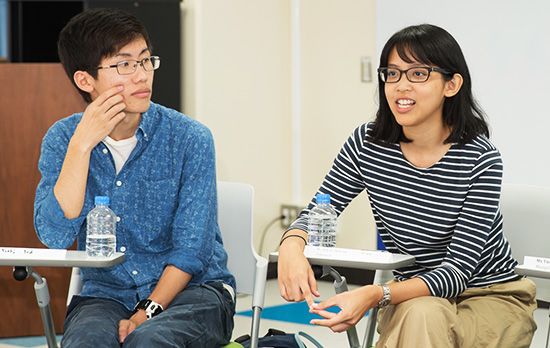
Khanh: We also went to the Kyoto Railway Museum . The most memorable thing for me was learning about the train system, and how this impacted the history of standard time. Before the existence of trains, each town had its own time system. Because trains allowed people to travel longer distance than ever before, it became necessary for all towns to use only one time system. That was the beginning of standard time.
. The most memorable thing for me was learning about the train system, and how this impacted the history of standard time. Before the existence of trains, each town had its own time system. Because trains allowed people to travel longer distance than ever before, it became necessary for all towns to use only one time system. That was the beginning of standard time.
Rezkita: When we went on the JSPSD trip, we visited the Hiroshima Peace Memorial Museum . It's one of the most moving museums I've ever been to. We got to read about the stories of the families affected by the atomic bomb. We saw a lot of objects that were left behind and we saw the Atomic Bomb Dome
. It's one of the most moving museums I've ever been to. We got to read about the stories of the families affected by the atomic bomb. We saw a lot of objects that were left behind and we saw the Atomic Bomb Dome . I think it's an opportunity that I wouldn't be able to have if I didn't join this course.
. I think it's an opportunity that I wouldn't be able to have if I didn't join this course.
Life on campus and getting to know Japan
How about daily life? Was it hard to adjust to life in Japan?
Chawit: In Japan, you don't have to be concerned about transportation. Everything is quite convenient. There's a good library , gym, swimming pool and basketball court at Tokyo Tech. Also, you can see beautiful scenery on campus like the sakura (cherry blossoms) in spring.
, gym, swimming pool and basketball court at Tokyo Tech. Also, you can see beautiful scenery on campus like the sakura (cherry blossoms) in spring.
Maythawee: I'd add that the library has excellent resources. I found old books I didn't expect to find like Charles Darwin's Voyage of the Beagle. I also found many books on engineering and other subjects that suit the course perfectly.
Uyanga: All GSEP students have to take nine credits of Japanese. So we've been studying Japanese for the last two years and we've reached a level where we can have a casual conversation with other Japanese students. In the first year, we learned survival Japanese — for example, how to order food and how to say "No plastic bags, please!" The class is very enjoyable. We all know each other and we're at the same level, so the class makes us closer.
Khanh: Although I didn't really experience culture shock, I think when people go out of their home countries, sometimes it's challenging to buy things we want to buy. A few years ago, I went to a supermarket and couldn't find softener for my clothes. I had to ask the shopkeeper by describing its functionality! I was so happy when I finally found it, and learned that it's called juunanzai. I'm grateful for that kind of experience when I go to other countries.
Thinking about future careers in international development and other fields
What are your goals for the future?
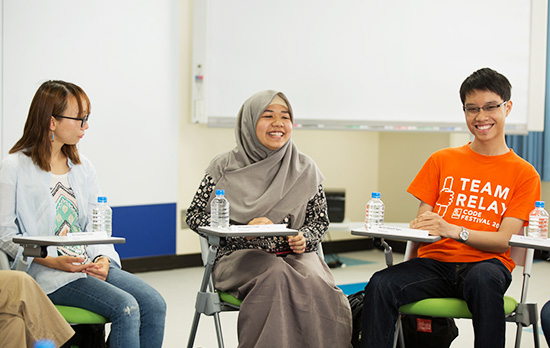
Tsani: One of our classes at TSE has given us an introduction to international development. I really want to help developing countries that are struggling with environmental problems, for example, by sending technologies and expertise to the field. For that class, the faculty invited many stakeholders involved in international development such as NGOs, people from private companies, from the Japan International Cooperation Agency (JICA) and national research institutes. This helped me to understand the role of stakeholders in more depth and think about my career plans. I'm particularly interested in chemical engineering and waste treatment. I'm interested in understanding the whole technology, including the social aspect and the psychological aspect, and how it's applicable to the real world.
and national research institutes. This helped me to understand the role of stakeholders in more depth and think about my career plans. I'm particularly interested in chemical engineering and waste treatment. I'm interested in understanding the whole technology, including the social aspect and the psychological aspect, and how it's applicable to the real world.
Uyanga: I'm also interested in international development — maybe more the energy aspect. The theme of sustainable development and transportation is very interesting to me. By joining TSE, I'm exposed to many interesting fields, so I hope I can narrow down my choices.
Napat: After taking project management classes through the GSEP, I'm now thinking I have two choices: something related to computers, or something related to communication. It's helpful that I can talk with faculty members about planning for internships later on.
Maythawee: One of the great things about GSEP is it's a good place to explore, even if you don't know how you can contribute yet. My interests are really diverse, but right now, I'm interested in science communication. I'd like to be involved in somehow bridging science and art. Maybe there are not enough people in engineering who are also interested in communicating their research, so I think this is an interesting area.
A word of advice to other budding scientists and engineers
Based on your experiences, do you have any advice for prospective applicants?
Khanh: I would advise: Don't be afraid of the word "transdisciplinary"! Before I came here, I felt very fearful of what transdisciplinary learning might entail, but now I know the purpose is to give us a broad base of knowledge.
Yaoki: As a Japanese Student belonging to TSE, it is great and fun to talk about and interact with GSEP students. Being around people from many different backgrounds is really stimulating. I think it's impressive that many of the foreign students can speak three or four different languages. That inspires me to study more. My message to Japanese students would be: TSE is right for you if you want to experience this kind of stimulation. TSE covers a lot of research fields and your options will expand.
Maythawee: I think GSEP is about getting out of your comfort zone, learning new things, meeting different people, and it's about opening up new opportunities.
Harunari: Being interacted with GSEP students, I find the energy and enthusiasm of the foreign students really inspiring. It makes me want to raise my game. Even with our different ways of thinking, we have common ground, and I'm more aware of local and global issues. My message to other Japanese students would be: Just try it. If you don't try, you'll never know! I'd encourage everyone to just take a first step. It will open new doors.
GSEP viewed through faculty members' eyes
Tokyo Tech faculty members involved in the launch and growth of GSEP share their thoughts on the unique nature of the program.
A pioneering program to meet the needs of future generations
When the ideas behind GSEP began to take shape three years ago, many faculty members and staff at Tokyo Tech were involved in the planning and logistical management of the program, which became part of the Tokyo Tech's Education Reform adopted in April 2016.
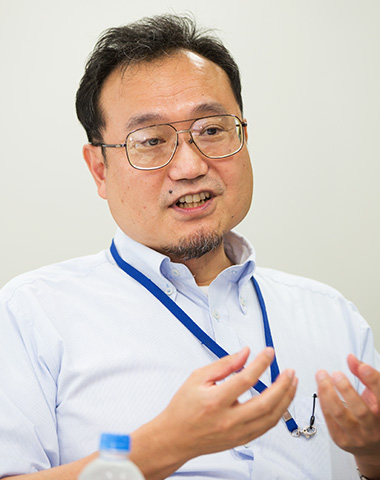
Professor Kunio Takahashi
"We know that transdisciplinary education will be important for the future of Japan and globally," says Professor Kunio Takahashi , Program Head of GSEP. "We were very happy to launch the program. It has a clear purpose: To raise up students who are capable of working in an increasingly globalized and interdisciplinary environment."
, Program Head of GSEP. "We were very happy to launch the program. It has a clear purpose: To raise up students who are capable of working in an increasingly globalized and interdisciplinary environment."
Setting up the program involved consolidating existing strengths at TSE, as well as introducing a range of new features. "We developed a hybrid program by coordinating with the TSE so that we could offer the same lectures in English for GSEP students as well as in Japanese for other students."
By demonstrating the feasibility of such a pioneering program, one larger goal for GSEP is to serve as a model for other Japanese universities.
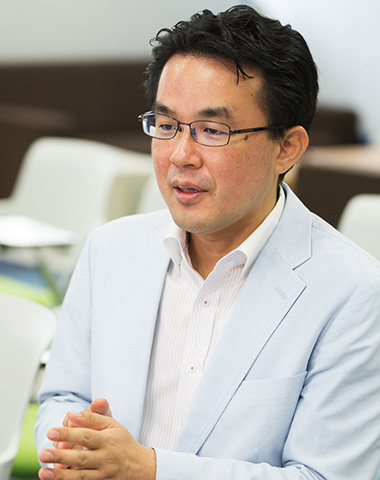
Professor Shinya Hanaoka
Professor Shinya Hanaoka , a member of the TSE faculty who is closely involved in activities at GSEP, says: "Students who apply to GSEP recognize that Japan is one of the best places to study science and engineering. We now receive a large number of applications from all over the world — from Asia, the United States and Europe. Each year, we have been receiving more and more applications from different countries."
, a member of the TSE faculty who is closely involved in activities at GSEP, says: "Students who apply to GSEP recognize that Japan is one of the best places to study science and engineering. We now receive a large number of applications from all over the world — from Asia, the United States and Europe. Each year, we have been receiving more and more applications from different countries."
Dr. Farid Triawan , a former specially-appointed associate professor and currently associate professor at Faculty of Engineering and Technology, Sampoerna University
, a former specially-appointed associate professor and currently associate professor at Faculty of Engineering and Technology, Sampoerna University , Indonesia, says, "After earning my master and doctoral degrees in Mechanical Engineering from TokyoTech, I had a chance of working in a Japanese company for almost three and half years. At this period, I was involved in many research and development projects related to water crisis issue in the world. This made me realize that engineering knowledge alone is actually not enough. Engineers need to understand the non-technological aspect as well as the engineering one when dealing with social problem in their project. Now, I am back in my home country, Indonesia, after spending about three years as one of GSEP lecturers. Again, I found many challenges to solve in daily life such as pollution, transportation, and lack of energy resource. Engineers need more than just their engineering knowledge. Hence, I am convinced that the transdisciplinary curriculum provided in GSEP, which provides not only science and engineering aspect but also social and art aspect, is an excellent approach to educate the future engineer."
, Indonesia, says, "After earning my master and doctoral degrees in Mechanical Engineering from TokyoTech, I had a chance of working in a Japanese company for almost three and half years. At this period, I was involved in many research and development projects related to water crisis issue in the world. This made me realize that engineering knowledge alone is actually not enough. Engineers need to understand the non-technological aspect as well as the engineering one when dealing with social problem in their project. Now, I am back in my home country, Indonesia, after spending about three years as one of GSEP lecturers. Again, I found many challenges to solve in daily life such as pollution, transportation, and lack of energy resource. Engineers need more than just their engineering knowledge. Hence, I am convinced that the transdisciplinary curriculum provided in GSEP, which provides not only science and engineering aspect but also social and art aspect, is an excellent approach to educate the future engineer."
Of the 41 students currently enrolled in the GSEP program, a remarkably high 35% are female and 65% male. The majority of students are from Thailand, and there are also students from Indonesia, Mongolia, Vietnam, the Philippines, Malaysia and Taiwan. Ten students per year can currently apply for MEXT scholarships, which cover four years of study.
Hands-on, real-world experience
GSEP's emphasis on project-based learning gives students the chance to acquire real-world skills. Professor Hanaoka comments that third-year students have most recently explored issues such as river waste management in Indonesia, traffic congestion in Bangkok and the environmental impacts of Asian dust. "During the first two years, we guide the students by suggesting various topics," he says. "Then, we encourage them in the third year to take the initiative, allocate team members and propose their own projects."
Key to the success of GSEP is that the faculty comprises highly motivated lecturers. They include three specially-appointed associate professors who themselves have experienced being international students at Tokyo Tech.
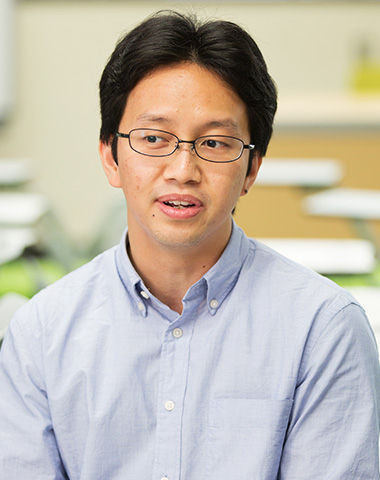
Specially Appointed Associate Professor
Azril Haniz Bin Abdul Aziz
Dr. Azril Haniz obtained his bachelor's degree at Tokyo Tech at a time when all classes were taught in Japanese. This immersive experience has given him a deep understanding of the institute as a whole.
obtained his bachelor's degree at Tokyo Tech at a time when all classes were taught in Japanese. This immersive experience has given him a deep understanding of the institute as a whole.
"One of our key strengths is the close relationship we have with faculty members across Tokyo Tech," he says. "As I was once a student here, I know that compared to back then, students now have a greater chance to interact, and we can get important feedback from them. This makes students' lives much easier and helps to enhance their learning." At GSEP, Dr. Haniz teaches classes including engineering measurement and theory of linear systems.
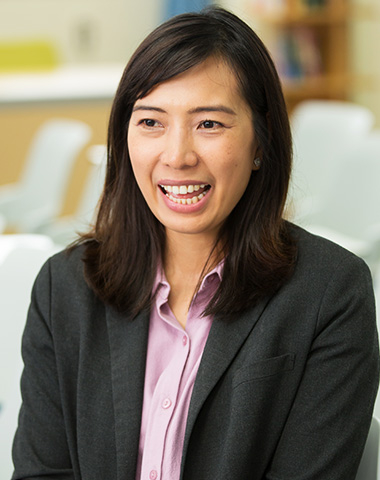
Specially Appointed Associate Professor
Eden Gan Mariquit
Based in Japan since 2011, Dr. Eden Mariquit obtained her PhD at Tokyo Tech, where she now specializes in environmental chemistry and photocatalysis. "When I studied here, I was impressed by the facilities and the support from the faculty and department," she says.
obtained her PhD at Tokyo Tech, where she now specializes in environmental chemistry and photocatalysis. "When I studied here, I was impressed by the facilities and the support from the faculty and department," she says.
"People here are kind and helpful, and I think those are the factors that made me want to study in Japan," she continues. "Now, I'm in a position where I can reciprocate — I'd like to give back by helping students through their struggles because I know what it's like firsthand. All of us here at GSEP are receptive and happy to help."
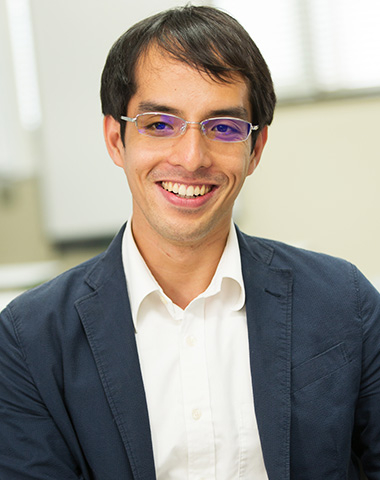
Specially Appointed Associate Professor
Alvin Christopher Galang Varquez
Dr. Alvin Varquez entered Tokyo Tech's Department of International Development Engineering (IDE)
entered Tokyo Tech's Department of International Development Engineering (IDE) , the predecessor of TSE, for his master's degree. "What I found very interesting was that there are so many distinguished professors from so many different fields. They helped us gain a broader perspective and this remains the essence of our transdisciplinary program now," he says. "As a former student, I know that there are many opportunities to learn about diverse fields. At GSEP, our teaching style is very interactive. The students ask us lots of questions and they follow up. It's quite rare, I think, for students to do that in Japan, so it's good to see Japanese students being inspired by the international students."
, the predecessor of TSE, for his master's degree. "What I found very interesting was that there are so many distinguished professors from so many different fields. They helped us gain a broader perspective and this remains the essence of our transdisciplinary program now," he says. "As a former student, I know that there are many opportunities to learn about diverse fields. At GSEP, our teaching style is very interactive. The students ask us lots of questions and they follow up. It's quite rare, I think, for students to do that in Japan, so it's good to see Japanese students being inspired by the international students."
While his research projects relate to climate change and the emerging field of urban climatology, at GSEP, Dr. Varquez teaches subjects including differential equations, which he describes as "a common language" for many engineering fields.
Insightful advice: A message to prospective students
Professor Jun-Ichi Takada
GSEP is waiting for you who have the diverse curiosity in applying science and engineering to the complicated and globalized challenges. You will acquire the solid basis of transdisciplinary science and engineering such as math, engineering sciences as well as social sciences. Through projects and variety of courses on the applied fields, you will experience the complicated transdisciplinary challenges in real world.
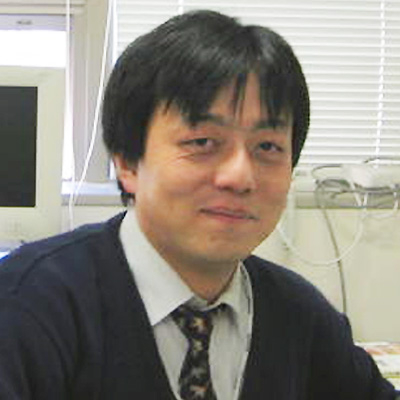
Professor Shinya Hanaoka
If you want to work on projects with a global impact, GSEP is the course for you. Our project-based learning will enable you to explore many important global issues such as those related to the environment and sustainable development.
Hanaoka Research Group
Dr. Eden Mariquit
GSEP provides a unique opportunity to study in a transdisciplinary environment. The program will also require some things from you — as we always say to prospective applicants, you will be expected to work in teams and be respectful of other cultures. You have to be serious and able to contribute in some way afterwards. While we provide ample support, you also have to do your part. If you are willing to learn in this type of dynamic environment, we very much look forward to welcoming you. Learning from each other, we can become broader-minded individuals who can contribute to society and the world.
Profile of GSEP faculty - Eden G. Mariquit | GSEP
Dr. Azril Haniz
I think GSEP enables students from all over the world to come and study in Japan without any language barriers. You can gain experiences here that you would not find at other universities in Japan. You will get to learn many interesting fields. By doing so, we hope that you will broaden your perspectives and be able to communicate with people from many different backgrounds. We welcome students who are willing to challenge themselves.
Profile of GSEP faculty - Azril Haniz | GSEP
Dr. Alvin Varquez
I have three pieces of advice for prospective applicants: First, I think you must have some interest in Japan. Second, students should be curious about science and engineering. Curiosity allows you to ask questions and interact with your fellow classmates and faculty. And third, it's important to have a selfless quality. If you're willing to help and build a better future for the world, then you will understand the importance of interdisciplinary collaboration. Above all, I'd like to say that the faculty are very supportive and we do our best to ensure that your life at Tokyo Tech will be fruitful.
Profile of GSEP faculty - Alvin C.G. Varquez | GSEP
Professor Kunio Takahashi
At a time when science and engineering are becoming increasingly globalized, it is important to think beyond borders. We welcome students who want to develop a strong base of knowledge, and go on to explore many branches of research. This will be important for their future careers, in view of the fact that Japanese companies, for example, look for those who have a global mind-set and have gained a broad overview of science and engineering. I would add that Japan has production bases in many countries and in many fields around the globe, so in addition to a good working knowledge of English, I always encourage foreign students to try and learn Japanese, too. The important thing is to develop a global outlook.
Takahashi Kunio Lab.
Dr. Farid Triawan
(a former specially appointed associate professor, currently associate professor at Faculty of Engineering and Technology, Sampoerna University, Indonesia)
As a former international student, I can say there are at least three benefits you will get by studying abroad to a Japanese university. First, you will be exposed to the best, friendly, comfortable, fun, and safest environment in the world. Second, you will get the opportunity to learn about your own country from outside and then compare it with what you see in Japan. Thus, when you go back home, you can contribute in a different and better way based on what you have learned. Third, you will be able to improve your foreign language skills both English and Japanese at the same time. This is because Japanese people love to learn English from international students and also to teach their language in daily life. However, there is one more big benefit if you choose Tokyo Tech and joining GSEP. You will be able to experience the unique top-notch curriculum of Transdisciplinary Major taught by excellent international faculty who will help you developing your potential and realizing your aspiration.
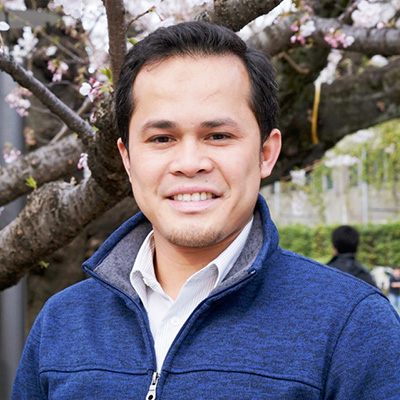
Profile of GSEP faculty - Farid Triawan | GSEP
With the growing number of email enquiries about GSEP, the popularity of the program is clearly gaining momentum. Going forward, the faculty anticipate that the students themselves will build a strong international network as alumni of the program.
As the application period is for just one month, potential applicants are advised to allow enough time to prepare all required documentation.
Finally, the faculty recommend all those interested in learning more about activities at GSEP to visit the dedicated GSEP website, which provides an overview of the program, links to student essays about their study trips, helpful information about student life, a Frequently Asked Questions page and further details of the application procedure.
The Special Topics component of the Tokyo Tech Website shines a spotlight on recent developments in research and education, achievements of its community members, and special events and news from the Institute.
Past features can be viewed in the Special Topics Gallery.
. Any information published on this site will be valid in relation to Science Tokyo.















